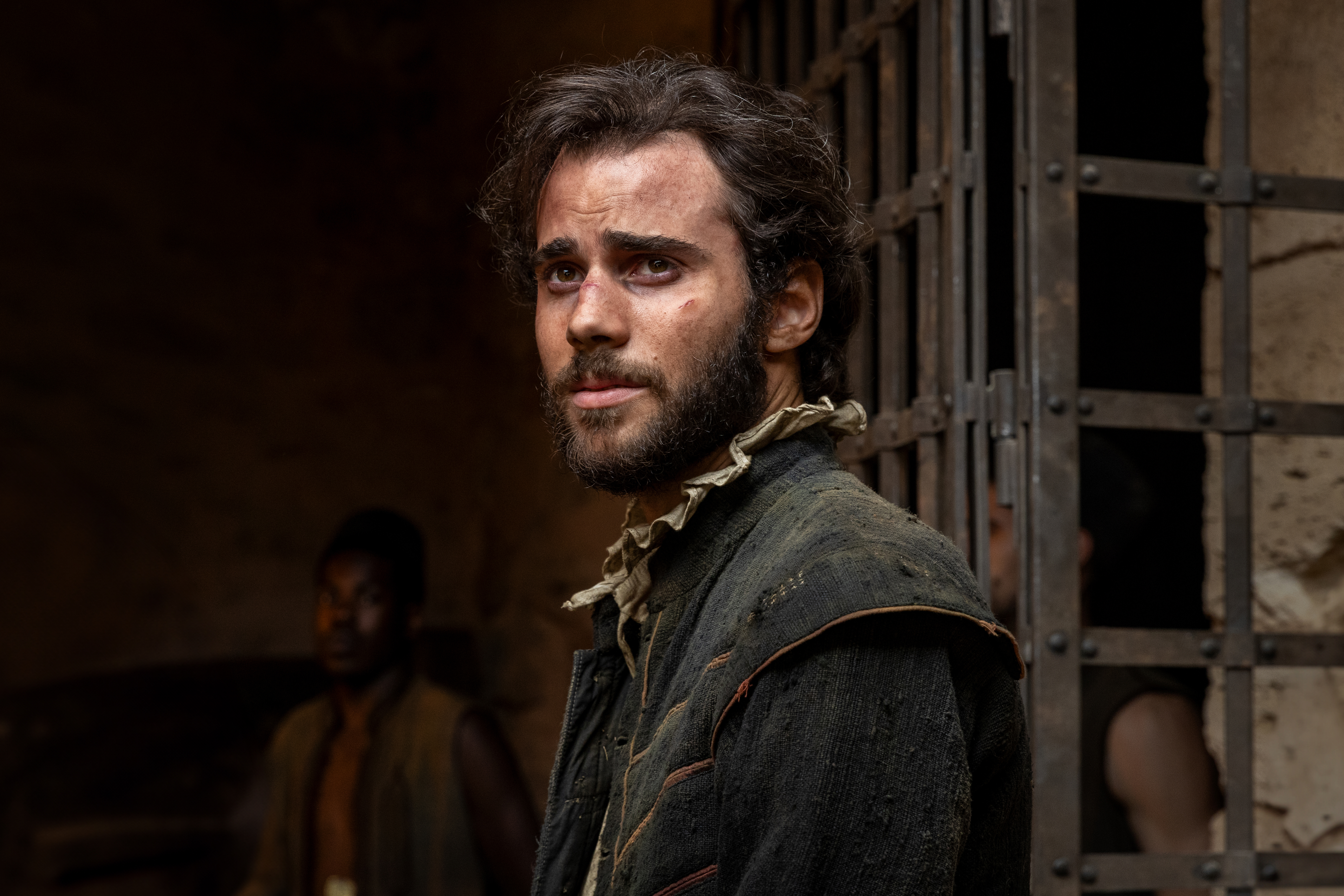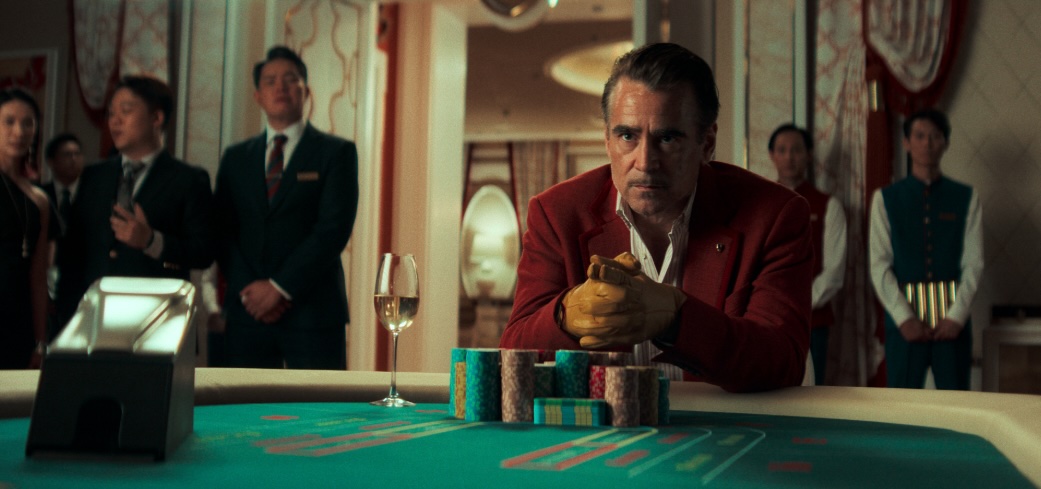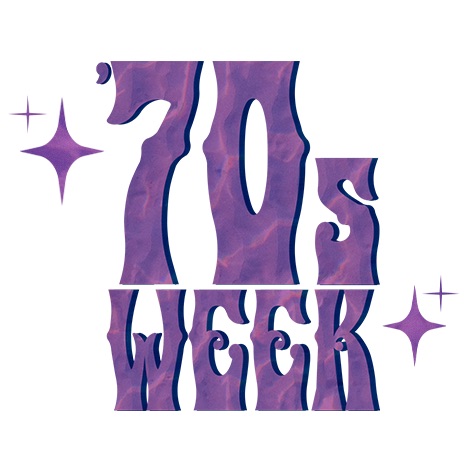
In 1971, Keith Carradine was a struggling young actor with only one film under his belt when he was summoned to Robert Altman‘s Westwood offices to audition for “McCabe & Mrs. Miller.” “I didn’t even have an agent yet,” Carradine told IndieWire. Carradine arrived at the office complex and was sent upstairs to Altman’s apartment, where he knocked on the door and heard the hottest director in Hollywood — who was fresh off the box office success of “M*A*S*H*” one year earlier — invite him inside.
“I opened the door and he was standing next to the bed wearing a bathrobe and a white T-shirt,” Carradine said. “He was unwrapping this package with brown paper and string around it, and he said, ‘I just got back from Colombia.’ This is the ’70s, so I’m thinking, what’s he unwrapping here? Is it a brick of cocaine? It turns out it was a piece of Pre-Columbian art he had picked up at the Cartegena Film Festival.”
Carradine’s “audition” barely lasted a minute. “He said, ‘Did you read the script?’ I said, ‘Yeah,’” Carradine said. “He said, “Did you read the part?’ I said, ‘Yeah.’ He said, “Do you want to do it?’ I said, ‘Yeah.’ He said, ‘Okay.’ And that was my audition. But that was Bob. He never asked anybody to read lines. He would meet you and he would speak with you, and he would decide if who he perceived you to be provided the right essence for the character.”
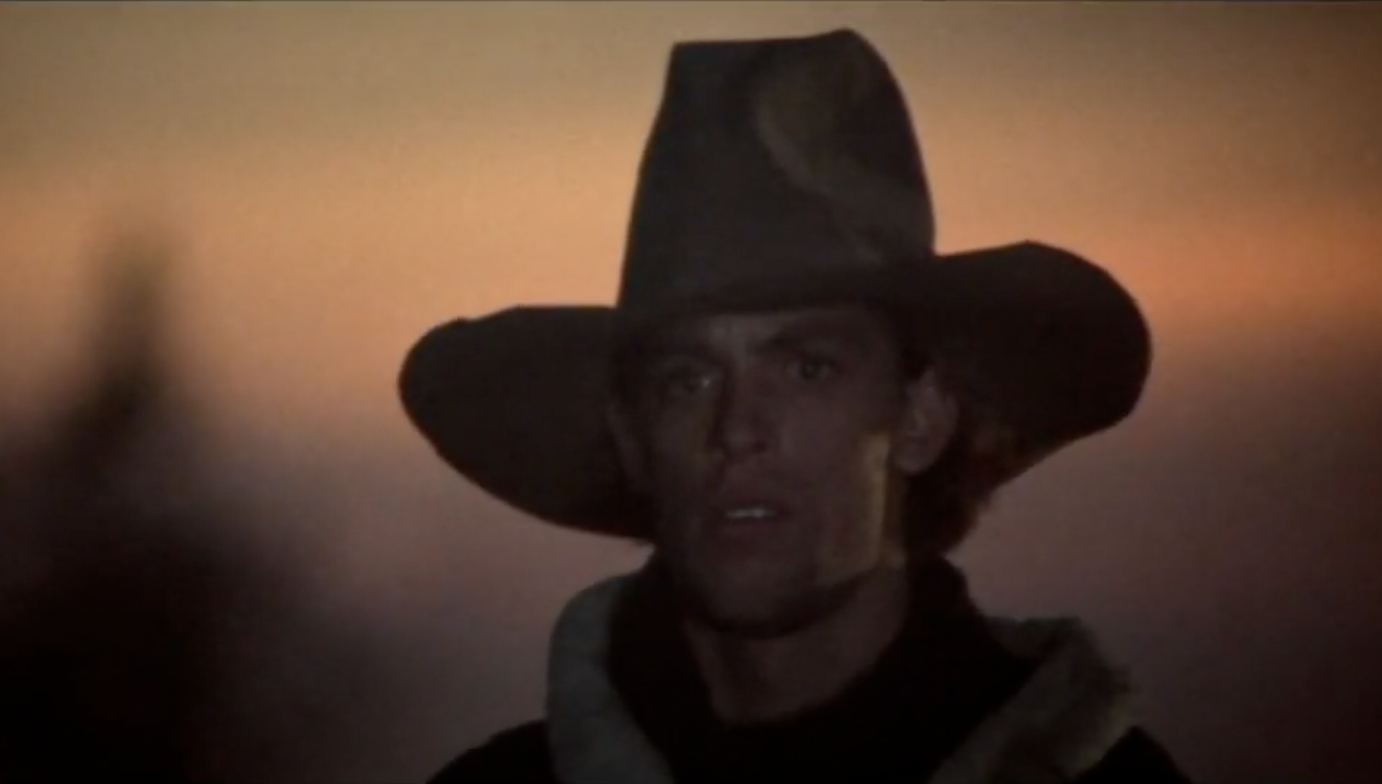
That initial meeting would ultimately yield an actor-director collaboration central to three of the best American films of the 1970s: the beautiful and haunting Western “McCabe & Mrs. Miller,” in which Carradine played a sweet, naive, and ultimately doomed cowboy; “Thieves Like Us” (1974), Altman’s remake of “They Live By Night” starring Carradine as a Depression-era bank robber; and “Nashville” (1975), a sprawling ensemble piece with Carradine as a self-absorbed folk singer.
The remarkable thing about Carradine’s performances in these movies is that he’s so natural and convincing in each that he seems to be playing himself in all three, yet the parts couldn’t be more different from each other. Carradine concedes that there probably was a little bit of him in the character (listed in the credits as simply “Cowboy”) he played in “McCabe.” “At the age of 20, there I stood all innocent and wide-eyed and ready to take this adventure,” Carradine said of his state of mind when first meeting Altman. “That was what he wanted in that role — he wanted that kind of innocence.”
Carradine said Altman’s ability to read people and capture their essence on film was his greatest talent as a director of actors. “I don’t recall him giving me any sort of specific direction, and I don’t remember seeing or hearing him do that with anyone,” Carradine said, though he did remember a disappointing moment when he arrived on location with his long hair — which Altman had told him he could keep — and learned he would have to cut it for the part. “My face just fell because I had been growing it for two years, and Bob said, ‘Kid, if that’s where your ego is at, it’s in the wrong place.’ I’ve never forgotten that.”
According to Carradine, Altman tended to shoot in continuity whenever possible, an approach that had a particular benefit on “McCabe,” which was partly about a new town springing up in the middle of nowhere. “Bob dressed all the construction guys who were building the town in period clothes, and he told everybody that was working on it that if they had a place where they wanted to sleep, they could camp out and make it their place,” Carradine said. “So there were people actually spending the night there and getting up to put on their period clothes, and that was going on in the background the whole time Bob shot the film. You saw the town grow.”
The next time Altman cast Carradine it was in a lead role, as the fugitive Bowie in “Thieves Like Us.” Carradine had no idea he was acting in a remake until he came across Nicholas Ray’s “They Live By Night” on television the night “Thieves” opened in New York. “After the screening I went back to my hotel and was flipping channels, and I heard Cathy O’Donnell turn to Farley Granger and call him Bowie,” Carradine said. “The next day I asked Bob about it and he said, ‘Oh yeah, we’re a remake.’”
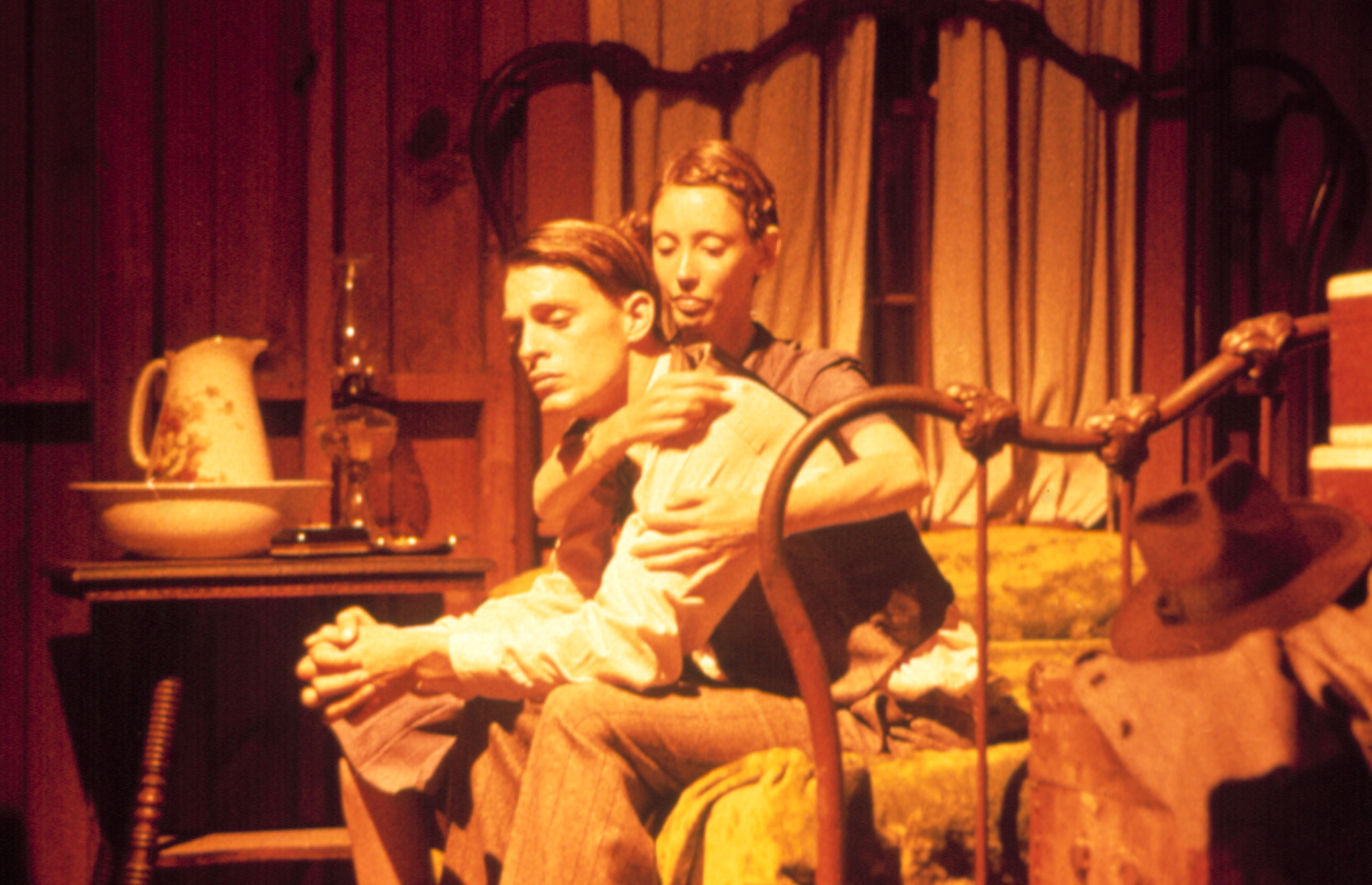
In Altman’s film, the Cathy O’Donnell role was played by Shelley Duvall, who had appeared in the director’s “Brewster McCloud” and “McCabe” and would go on to work with Altman again in “Nashville,” “Buffalo Bill and the Indians,” “3 Women,” and “Popeye.” “Thieves Like Us” was her first big part, and her scenes with Carradine are among the most moving in Altman’s oeuvre, sweet and funny and tragic all at once. “She was amazing,” Carradine said. “The fact is that all I had to do was show up and be present, because she had such honesty and energy, and an inability to be untruthful on camera. All I had to do was join in.”
The seeds for Carradine and Altman’s next collaboration were planted during the “Thieves Like Us” shoot when Altman and “Thieves” screenwriter Joan Tewkesbury heard their star playing some songs at a party. “I had my guitar and I was playing some songs that I had written, and among them were ‘I’m Easy’ and ‘It Don’t Worry Me,’” Carradine said, referring to two compositions that would be put to brilliant use in “Nashville.” After hearing Carradine’s songs, Tewkesbury wrote the folk trio of Bill, Mary, and Tom with Carradine in mind to play Bill — though things worked out a little differently in the end.
“I was originally going to play the role that Allan Nicholls played — Bill,” Carradine said. “The original Tom was supposed to be Gary Busey. Gary Busey got an offer to do a pilot for a half-hour comedy show with Jack Elam called ‘Texas Wheelers’ and he dropped out of ‘Nashville’ to do the pilot. When he dropped out, Bob moved me into that role. It was a role that was based on Gary Busey’s energy, and I was not comfortable playing that guy.”
Carradine struggled on set, feeling that he didn’t like Tom and didn’t know how to play him, but when he asked Altman for help his director was dismissive. “He looked at me and said, ‘You’re fine,’ and walked away,” Carradine said. Carradine was more frustrated than ever, but he realized after the fact that Altman knew exactly what he was doing.
“What you see in that movie is a guy who doesn’t like himself,” Carradine said. “I wish I could take credit for having designed that, but that was just Bob capturing me, this young actor who was still insecure enough to feel as though the role that I was playing might reflect on me somehow. I didn’t want people looking at me and thinking that’s who I really was. I had an issue with that, and that’s what’s in the movie.”
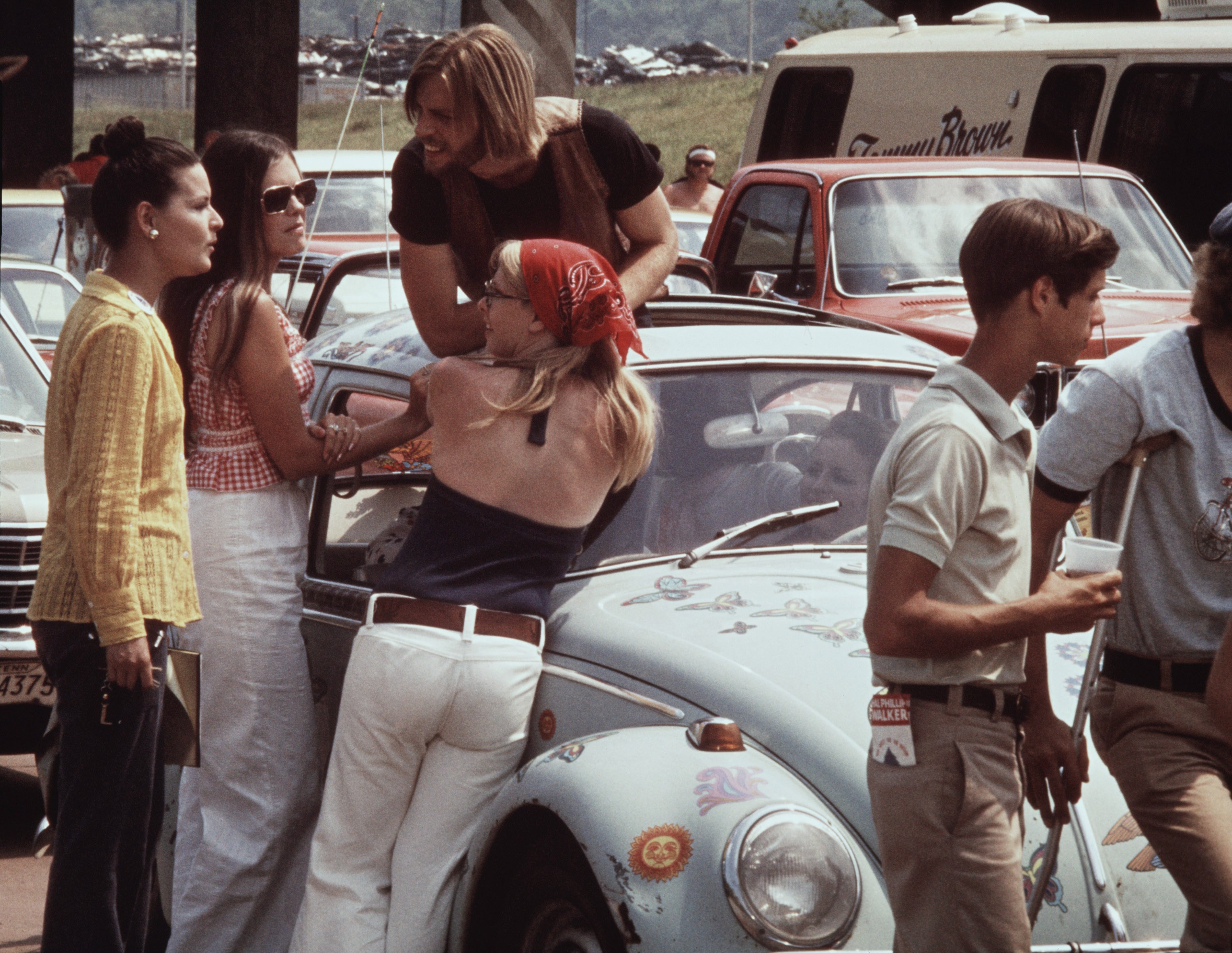
Carradine was, in his words, “stunned” when he was nominated for an Oscar for the song “I’m Easy,” and figured he had no hope of winning when he was up against songs performed by icons like Diana Ross and Barbra Streisand. “I didn’t have a prayer, are you kidding?” Carradine said. “I was up against Berry Gordy and the Motown machine. Diana Ross gave her performance live from Amsterdam in a sleigh where it was snowing with all this production, and I’m sitting there by myself on the stage of the Dorothy Chandler Pavilion with my guitar.”
Carradine was terrified performing on the broadcast and just wanted to get through the song without blowing it — and then he won. “I had nothing prepared,” Carradine said. “I did not write anything down or plan what I was going to say, because I just thought I’d be lucky to get through the performance.” At that point the song hadn’t even been released as a record, but after the Oscar win David Geffen called Carradine about releasing a heavily produced version that was more elaborate than the version he sang in “Nashville.”
Once that record came out and started getting some airplay, the record company that owned the soundtrack rights to “Nashville” belatedly realized what they had and put out the soundtrack version of Carradine’s song — meaning he was competing with himself on the radio with two versions of the same hit. “I wound up in the top ten, but I think if there had just been a single record out there without that confusion, I might have gone gold.”
Carradine says that while he might not have realized just how enduring “Nashville” would become, he did know he was working on something special at the time — and he knew that when Altman cast him in “Thieves Like Us” he had been given an incredible gift. “I felt as though Bob had given me the role of a lifetime,” Carradine said, “and I knew I was working with one of the great directors, so I was in a pretty heady place. And I knew when we were shooting ‘Nashville’ that we were doing something really good — I didn’t realize how good.”
A couple of years before Altman passed away in 2006, Carradine was in New York with his then-girlfriend, now-wife Hayley and they got together with Altman and his wife Kathryn for dinner. “We went to Elaine’s, which was one of Bob’s favorite hangs,” Carradine said. “I managed to have a moment alone with Elaine where I slipped her my credit card and said, ‘Do not let Bob pick up the tab,’ because nobody ever bought him dinner. It just wasn’t done. At one point I turned to Bob and said, ‘Bob, I just want to say something.’ He looked at me like, what’s this? And I said, ‘I just want to say thank you.’ And it gave him pause. It stopped him cold. And he just said, ‘You’re welcome.’ I’ll never forget it.”
IndieWire’s ‘70s Week is presented by Bleecker Street’s “RELAY.” Riz Ahmed plays a world class “fixer” who specializes in brokering lucrative payoffs between corrupt corporations and the individuals who threaten their ruin. IndieWire calls “RELAY” “sharp, fun, and smartly entertaining from its first scene to its final twist, ‘RELAY’ is a modern paranoid thriller that harkens back to the genre’s ’70s heyday.” From director David Mackenzie (“Hell or High Water”) and also starring Lily James, in theaters August 22.

